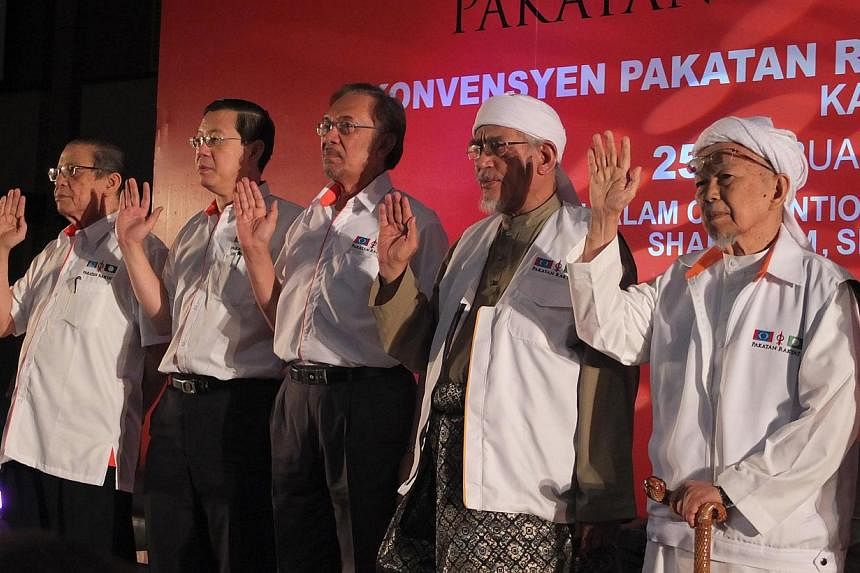Nik Aziz Nik Mat, the Spiritual Leader of the Pan-Malaysian Islamic Party (PAS) has been a prominent political and religious figure in Malaysia since the 1980s, and has played a pivotal role in the development of PAS as a modern Islamist party with international connections. His passing may have a profound impact on both the party he led, and Malaysia as a whole.
Along with Mr Yusof Rawa, he was among the senior members of the so-called 'Ulama faction' that deposed the president of the Islamic party Asri Muda in 1982, and began the internal reform of the party that turned it into Malaysia's biggest and perhaps best organised opposition party.
Throughout the 1990s he was seen as the bedrock of PAS' power among the Malay-Muslim electorate and the key factor that ensured the victory of PAS in the state of Kelantan, of which he was chief minister for 23 years.
Despite several attempts by the ruling coalition to woo the electorate of Kelantan, the Kelantanese voters opted for PAS throughout the 1990s and at the elections of 2004, 2008 and 2013.
Mr Nik Aziz was also one of the engineers of the Islamisation programme in the state, and played a key role in the development of the network of madrasahs (religious schools) there, linking them to a wider global network of madrasahs across the Muslim world.
Since 1999, PAS has sought to represent itself to the Malaysian electorate as an Islamist party that was colour-blind and transcended ethnic differences. This was partly the result of the collaboration between Mr Yusof Rawa and Mr Nik Aziz, who wished to represent the Islamist party in clear and strictly defined ideological terms as a party of Muslims first, and one that would promote a vision of an Islamic state where ethnic distinctions were secondary.
In keeping with this project, he also promoted the collaboration between traditional Ulama (religious scholars) and professional university-trained technocrats, which was dubbed the Ulama-Professional coalition, since the 1990s.
The shift towards a more ideological approach was partly due to the pragmatic understanding that no party could govern Malaysia alone, and that for PAS to become a truly national party it would have to form a coalition with other parties such as the DAP and PKR (the latter of which was formed after the 1999 political crisis in the country).
Over the past two decades, Nik Aziz was seen as the main pillar of support behind the pragmatic faction within the party's leadership, sometimes dubbed as the "reformers" or the "Erdogan" faction.
Since the elections of 2008, the pragmatic wing of PAS has opted for closer co-operation with the DAP and PKR in the opposition Peoples' Alliance (Pakatan Rakyat) coalition, despite the growing chorus of concern and disapproval among some of the factions within PAS, who argued that by virtue of being in such a coalition the party had diluted its Islamist ideology and character.
Several attempts were made to challenge and weaken the opposition coalition, both within and without the component parties, but Mr Nik Aziz was steadfast in his commitment to the opposition coalition and argued that PAS would eventually come to power on its own terms, rather than join the present ruling coalition.
In this regard, it ought to be noted that Mr Nik Aziz''s stand was both religious and ideological in nature: Since the 1980s some of the senior Ulama of the party had denounced the ruling parties in power as being un-Islamic, and vowed to replace them through the ballot box.
Ideologically PAS - under men like Mr Nik Aziz - saw itself as part of a global Islamist movement and that is also why it preferred to align itself with parties like the Ikhwan'ul Muslimin of Egypt and the Jama'at-e Islami of Pakistan, rather that be seen closer to UMNO. In some cases the international linkages that were built during that period cost the party dearly, as it did when PAS came out in support of the Taleban during the invasion of Afghanistan.
Mr Nik Aziz's passing raises several questions about the future of PAS and its standing in the opposition PR coalition: Firstly, with him gone, it is unclear to what extent the reformist-modernist "Erdogan" faction can hold back the growing demands for PAS to break away from the opposition coalition, and to join other Malay-Muslim parties to uphold the goal of Malay-Muslim pre-eminence in the country.
Notwithstanding Nik Aziz's pragmatic approach to coalition-building, there have also been protests from within PAS about how the party had grown too close to the DAP and was in danger of compromising its Islamist credentials as a result.
Secondly, the passing of Nik Aziz means that the pivotal post of Spiritual Leader of the party will need to be filled by another PAS leader of equal standing and prominence, and who will in turn be in the important position of being able to determine the outlook and orientation of the party as a whole.
Since the 1980s, Nik Aziz was perhaps one of the most visible faces of PAS in the country and beyond. For PAS' allies in the global network of Islamist parties such as the Ikhwan'ul Muslimin, the Jama'at-e Islami and the new reformist Islamist parties in Turkey and Tunisia, he was one of the few Malaysian Islamist leaders of international standing and importance who had put PAS on the global map of political Islam.
While filling the shoes of Mr Nik Aziz will not be an easy task for any of the leaders of the party today, the political implications of his passing are also of concern to analysts and observers of Malaysian politics.
Coming at a time when a range of NGOs and lobby groups have been calling for Malay-Muslim unity, the death of Mr Nik Aziz will have real consequences for PAS' standing within the opposition alliance, and Malaysia by extension.
Of late there has been much speculation about whether the opposition alliance can remain together up to the next election. Mr Nik Aziz's death may also spell the end of that coalition as well.
Dr Farish A. Noor is Associate Professor at RSIS, NTU, and author of The Malaysian Islamic Party PAS 1951-2013, Amsterdam University Press, 2014.


